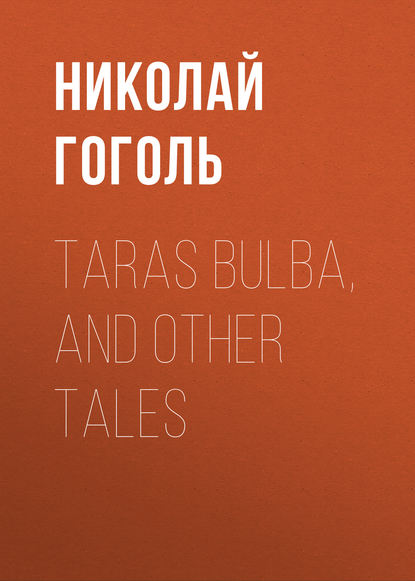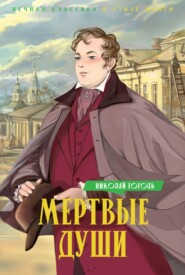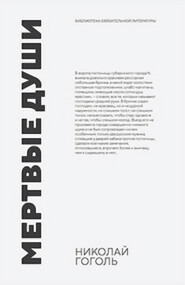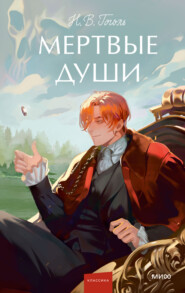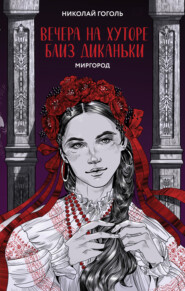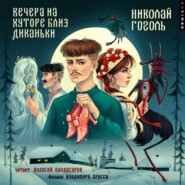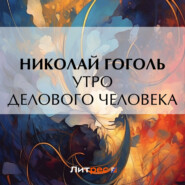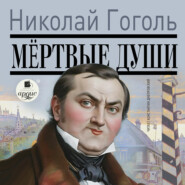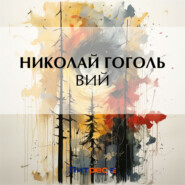По всем вопросам обращайтесь на: info@litportal.ru
(©) 2003-2025.
✖
Taras Bulba, and Other Tales
Год написания книги
2018
Настройки чтения
Размер шрифта
Высота строк
Поля
“Well, Koschevoi, it is time for the Zaporozhtzi to set out.”
“There is nowhere for them to go,” replied the Koschevoi, removing his short pipe from his mouth and spitting to one side.
“What do you mean by nowhere? We can go to Turkey or Tatary.”
“Impossible to go either to Turkey or Tatary,” replied the Koschevoi, putting his pipe coolly into his mouth again.
“Why impossible?”
“It is so; we have promised the Sultan peace.”
“But he is a Mussulman; and God and the Holy Scriptures command us to slay Mussulmans.”
“We have no right. If we had not sworn by our faith, it might be done; but now it is impossible.”
“How is it impossible? How can you say that we have no right? Here are my two sons, both young men. Neither has been to war; and you say that we have no right, and that there is no need for the Zaporozhtzi to set out on an expedition.”
“Well, it is not fitting.”
“Then it must be fitting that Cossack strength should be wasted in vain, that a man should disappear like a dog without having done a single good deed, that he should be of no use to his country or to Christianity! Why, then, do we live? What the deuce do we live for? just tell me that. You are a sensible man, you were not chosen as Koschevoi without reason: so just tell me what we live for?”
The Koschevoi made no reply to this question. He was an obstinate Cossack. He was silent for a while, and then said, “Anyway, there will not be war.”
“There will not be war?” Taras asked again.
“No.”
“Then it is no use thinking about it?”
“It is not to be thought of.”
“Wait, you devil’s limb!” said Taras to himself; “you shall learn to know me!” and he at once resolved to have his revenge on the Koschevoi.
Having made an agreement with several others, he gave them liquor; and the drunken Cossacks staggered into the square, where on a post hung the kettledrums which were generally beaten to assemble the people. Not finding the sticks, which were kept by the drummer, they seized a piece of wood and began to beat. The first to respond to the drum-beat was the drummer, a tall man with but one eye, but a frightfully sleepy one for all that.
“Who dares to beat the drum?” he shouted.
“Hold your tongue! take your sticks, and beat when you are ordered!” replied the drunken men.
The drummer at once took from his pocket the sticks which he had brought with him, well knowing the result of such proceedings. The drum rattled, and soon black swarms of Cossacks began to collect like bees in the square. All formed in a ring; and at length, after the third summons, the chiefs began to arrive—the Koschevoi with staff in hand, the symbol of his office; the judge with the army-seal; the secretary with his ink-bottle; and the osaul with his staff. The Koschevoi and the chiefs took off their caps and bowed on all sides to the Cossacks, who stood proudly with their arms akimbo.
“What means this assemblage? what do you wish, gentles?” said the Koschevoi. Shouts and exclamations interrupted his speech.
“Resign your staff! resign your staff this moment, you son of Satan! we will have you no longer!” shouted some of the Cossacks in the crowd. Some of the sober ones appeared to wish to oppose this, but both sober and drunken fell to blows. The shouting and uproar became universal.
The Koschevoi attempted to speak; but knowing that the self-willed multitude, if enraged, might beat him to death, as almost always happened in such cases, he bowed very low, laid down his staff, and hid himself in the crowd.
“Do you command us, gentles, to resign our insignia of office?” said the judge, the secretary, and the osaul, as they prepared to give up the ink-horn, army-seal, and staff, upon the spot.
“No, you are to remain!” was shouted from the crowd. “We only wanted to drive out the Koschevoi because he is a woman, and we want a man for Koschevoi.”
“Whom do you now elect as Koschevoi?” asked the chiefs.
“We choose Kukubenko,” shouted some.
“We won’t have Kukubenko!” screamed another party: “he is too young; the milk has not dried off his lips yet.”
“Let Schilo be hetman!” shouted some: “make Schilo our Koschevoi!”
“Away with your Schilo!” yelled the crowd; “what kind of a Cossack is he who is as thievish as a Tatar? To the devil in a sack with your drunken Schilo!”
“Borodaty! let us make Borodaty our Koschevoi!”
“We won’t have Borodaty! To the evil one’s mother with Borodaty!”
“Shout Kirdyanga!” whispered Taras Bulba to several.
“Kirdyanga, Kirdyanga!” shouted the crowd. “Borodaty, Borodaty! Kirdyanga, Kirdyanga! Schilo! Away with Schilo! Kirdyanga!”
All the candidates, on hearing their names mentioned, quitted the crowd, in order not to give any one a chance of supposing that they were personally assisting in their election.
“Kirdyanga, Kirdyanga!” echoed more strongly than the rest.
“Borodaty!”
They proceeded to decide the matter by a show of hands, and Kirdyanga won.
“Fetch Kirdyanga!” they shouted. Half a score of Cossacks immediately left the crowd—some of them hardly able to keep their feet, to such an extent had they drunk—and went directly to Kirdyanga to inform him of his election.
Kirdyanga, a very old but wise Cossack, had been sitting for some time in his kuren, as if he knew nothing of what was going on.
“What is it, gentles? What do you wish?” he inquired.
“Come, they have chosen you for Koschevoi.”
“Have mercy, gentles!” said Kirdyanga. “How can I be worthy of such honour? Why should I be made Koschevoi? I have not sufficient capacity to fill such a post. Could no better person be found in all the army?”
“Come, I say!” shouted the Zaporozhtzi. Two of them seized him by the arms; and in spite of his planting his feet firmly they finally dragged him to the square, accompanying his progress with shouts, blows from behind with their fists, kicks, and exhortations. “Don’t hold back, you son of Satan! Accept the honour, you dog, when it is given!” In this manner Kirdyanga was conducted into the ring of Cossacks.
“How now, gentles?” announced those who had brought him, “are you agreed that this Cossack shall be your Koschevoi?”
“We are all agreed!” shouted the throng, and the whole plain trembled for a long time afterwards from the shout.
One of the chiefs took the staff and brought it to the newly elected Koschevoi. Kirdyanga, in accordance with custom, immediately refused it. The chief offered it a second time; Kirdyanga again refused it, and then, at the third offer, accepted the staff. A cry of approbation rang out from the crowd, and again the whole plain resounded afar with the Cossacks’ shout. Then there stepped out from among the people the four oldest of them all, white-bearded, white-haired Cossacks; though there were no very old men in the Setch, for none of the Zaporozhtzi ever died in their beds. Taking each a handful of earth, which recent rain had converted into mud, they laid it on Kirdyanga’s head. The wet earth trickled down from his head on to his moustache and cheeks and smeared his whole face. But Kirdyanga stood immovable in his place, and thanked the Cossacks for the honour shown him.
Thus ended the noisy election, concerning which we cannot say whether it was as pleasing to the others as it was to Bulba; by means of it he had revenged himself on the former Koschevoi. Moreover, Kirdyanga was an old comrade, and had been with him on the same expeditions by sea and land, sharing the toils and hardships of war. The crowd immediately dispersed to celebrate the election, and such revelry ensued as Ostap and Andrii had not yet beheld. The taverns were attacked and mead, corn-brandy, and beer seized without payment, the owners being only too glad to escape with whole skins themselves. The whole night passed amid shouts, songs, and rejoicings; and the rising moon gazed long at troops of musicians traversing the streets with guitars, flutes, tambourines, and the church choir, who were kept in the Setch to sing in church and glorify the deeds of the Zaporozhtzi. At length drunkenness and fatigue began to overpower even these strong heads, and here and there a Cossack could be seen to fall to the ground, embracing a comrade in fraternal fashion; whilst maudlin, and even weeping, the latter rolled upon the earth with him. Here a whole group would lie down in a heap; there a man would choose the most comfortable position and stretch himself out on a log of wood. The last, and strongest, still uttered some incoherent speeches; finally even they, yielding to the power of intoxication, flung themselves down and all the Setch slept.
CHAPTER IV





